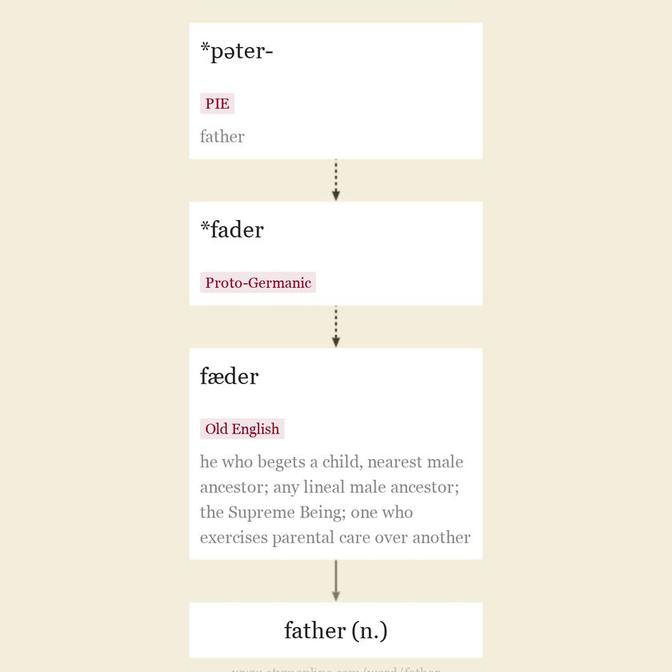stepfather n.
also step-father, Old English steopfæder; see step- + father.
Entries linking to stepfather
Old English steop-, with connotations of "
Etymologically, a stepfather or stepmother is one who becomes father or mother to an orphan, but the notion of orphanage faded in 20c. and came to denote simply relation through marriage. For sense evolution, compare Latin privignus "

Old English fæder "
My heart leaps up when I behold
A rainbow in the sky:
So was it when my life began;
So is it now I am a man;
So be it when I shall grow old,
Or let me die!
The Child is father of the Man;
I could wish my days to be
Bound each to each by natural piety.
[Wordsworth, 1802]
The classic example of Grimm's Law, where PIE "
updated on November 27, 2013